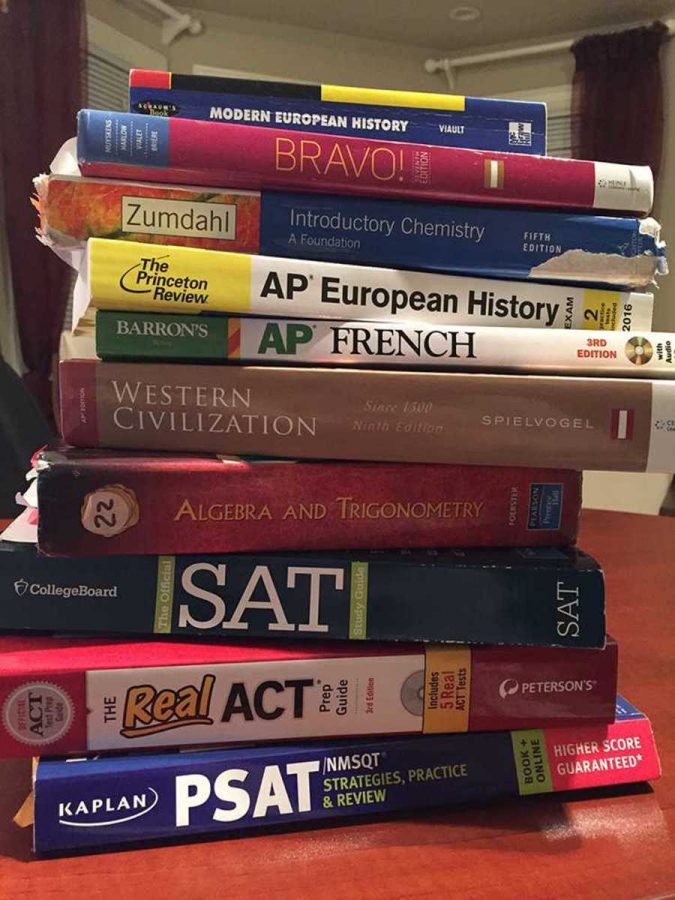Your donation will support the student journalists of Sycamore High School. Your contribution will allow us to purchase equipment and cover our annual website hosting costs.
downGRADE
Rethinking the traditional grading system
February 1, 2016
As the competitiveness of education increases, emphasis on grades and test scores rather than learning demeans the value of real knowledge. Researchers are noting the importance of skills that are rarely considered important as part of traditional grading systems. New efforts are being put in place to promote critical thinking and problem solving that are a significantly lacking in modern day students.
Let’s take a quick trip down memory lane and glance back at our childhoods. Unrestricted curiosity ran rampant, and there were millions of questions to be asked. Every school day was a new adventure with new discoveries.
Flash-forward to high school, students are drowning in work. Exhausted, overworked and sacrificing everything: health, sleep, and sometimes sanity, for a perfect GPA. For some, the thought of “learning for fun” is completely foreign.
So what happened?
Our education system’s emphasis on grades to determine intelligence demeans the value of learning and discovery. With so much time and effort being devoted to getting a good grade, the motivation to learn thoroughly and explore drops dramatically.
This is why students often resort to doing the bare minimum to get a grade. Unfortunately, creativity and motivation can’t be shown by a single letter, so instead of learning, students are unintentionally pushed to quickly memorize facts without really capturing the importance of what they are learning.
Can standardized tests really show all aspects of a person’s education? Can one test possibly differentiate between students who have succeeded and those who have not? Occasionally, the competitive drive of our education forces us to believe this. Thankfully, universities are starting to reform admissions processes to allow for more diverse aspects of a student to be revealed and evaluated.
Students’ fear of failure limits the amount of creative risk and challenge they are willing to take. Taking the safer route is sometimes regarded as the better option even though improvement is minimal. Now days, failure is not an option, but isn’t it true that it is our failures that help us grow?
The American Association Colleges and Universities (AAC&U) released results from a survey of business owners that found that 9 out of 10 recent college graduates are not prepared for job related critical thinking, communication and problem solving.
Debra Humphreys, vice president of AAC&U said to Wall Street Journal, “Employers are saying I don’t care about all the knowledge you learned… I care about whether you can continue to learn over time and solve complex problems.”
The very notion of the traditional grade almost hints that there is only one right way to do things. Students are not encouraged to think in new and innovative ways. Thinking too far outside the box is not often supported, although this way of thinking is how the world changes.
This is not to say that that grades aren’t important, but there is a whole world of things that can’t be measured quantitatively that are often disregarded. These essential skills form a basis of success in college and beyond, as well as everyday life and personal dilemmas.
No matter what you major in, be it economics, medicine or education, critical thinking and communication skills are imperative to be able to reason though everyday day obstacles. Lacking these fundamental skills can be a serious detriment to future success.
A study by Forbes Magazine revealed that employers look primarily for strong problem solving and communication skills as well as the ability to work collaboratively as a team. Surprisingly, in the ranked list of necessary skills for success in the workplace, technical, job-related knowledge only placed 7th on a list of 10 items.
So next time you find yourself with a little free time, research a topic that interests you, ask some questions and maybe try thinking in a new way. Instead of just mindlessly recopying information, think about how it applies to our society and how this information may impact yourself as well as future generations. At the end of the day it might make all the difference.
